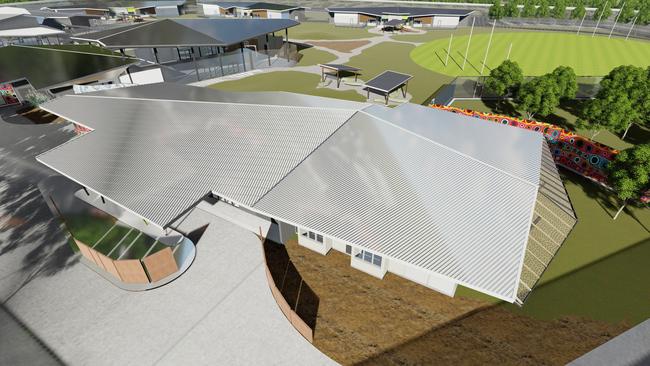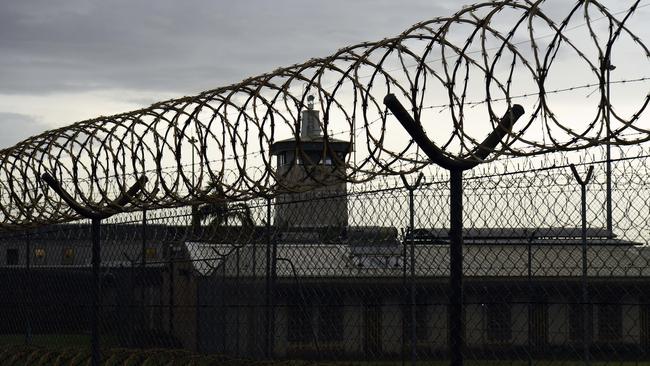Therapeutic model of care released five years after Don Dale Royal Commission
A plan outlines how Territory Families plans to tackle the youth detention crisis in the NT. We take you inside the model of care to reform the nation’s most notorious youth centre.
News
Don't miss out on the headlines from News. Followed categories will be added to My News.
A new operational model of care for youth in detention centres has been released in the wake of damning reports.
Territory Families’ 55-page plan outlines an aspirational therapeutic model of care, five years after the Royal Commission into Protection and Detention of Children in the Northern Territory recommended one.
Using a tiered approach, the plan aspires to use detention as a last resort.
This is in line with the Youth Justice Act, however it is unclear how other sectors including police and courts will be engaged in the model.
Territory Families acting deputy chief executive officer Sasha Dennis said the model of care was “tangible” and “practical”.
“This document sets out concrete, practical and achievable steps for us to improve the way we care for young people in detention,” she said.
“The changes will be noticeable from the moment a young person enters our care to well after they have returned to the community.”

Therapeutic models of care are designed as a comprehensive approach to helping children recover from complex trauma - in this case, while in institutional care.
Territory Families’ model considers multiple psychology principles including cultural safety, trauma informed care and person centred care to set out a plan for how detention centres will operate and train youth justice offices in the future.

The plan promises to allow children a minimum of 13 hours outside their cells per day.
Following a series of self-harm incidents at Don Dale in June, the acting Children’s Commissioner Nicole Hucks said the deteriorating situation was because of a growing number of children inside the centre amid ongoing staff shortages.
“(This) has resulted in the continual and systematic use of extended lockdowns of children in Don Dale,” she said.
Last year, her office found some young people were left in their cells for up to 23 hours and 45 minutes per day while waiting for medical assessments.
The care model aims to mitigate these issues by ensuring “appropriate rostering and staff ratios”.
“Rostering staff with appropriate experience and training to support different cohorts and needs of young people at any given time,” the plan reads
“Providing overlaps of staff rostering to allow ample time for case management, debriefs on critical incidents, and handovers.”
The NT News understands Territory Families will not set a figure for how many staff would be considered a full complement, which is best practice in other institutional settings such as hospitals and childcare centres.
Critically, the plan details how young people will be engaged in comprehensive multidisciplinary assessments.
The plan said young people in youth justice experienced high rates of self-harm, suicidal ideation, addiction, depression, anxiety and post-traumatic stress disorders.
“Up to 75 per cent of young people in the youth justice system are reported to have one or more psychiatric disorders,” the plan reads.
“Developmental and intellectual disorders such as foetal alcohol spectrum disorder, autism spectrum disorders … are widespread with most young people expected to have at least one neurodevelopmental impairment.”
The plan said an initial screening would be completed by a Youth Justice Officer in a “private space where the young person can feel comfortable”.
It will use a series of templates to list the child’s worries, risks, strengths, goals and hopes.
Within the following four weeks, a comprehensive assessment will be conducted by a multidisciplinary team to assess cognitive and physical disability alongside behavioural and social supports needed.

The assessment team should include psychologists, occupational therapy, speech pathology, neuropsychiatry, education and family, however the NT is currently grappling with a skills shortage across all these fields.
Another component of the plan includes Certificate IV in Youth Justice for all staff.
Key details including time frames for implementation and evaluation frameworks were not provided.
The NT News understands the plan will have a staged approach however no end date for full implementation has been set.
The NT News requested the stakeholder feedback on the plan but it was not provided a copy.
The plan is one of a three-part series that includes implementation and the evaluation framework, neither were provided on request.

In 2023, up to 50 children will be moved from the current Don Dale – the defunct blocks of Berrimah Adult prison – to the new Darwin Youth Detention Centre.
The therapeutically designed “state of the art” detention centre will neighbour the Holtze Adult Correctional Facility.
In 2017 the Royal Commission said neither Alice Springs nor Don Dale Youth Detention Centres were “fit for accommodating, let alone rehabilitating, children and young people”.
It also stated Don Dale Youth Detention Centre should have been closed and replaced with a new facility by February 17, 2018.

Now four years on, the Territory government has completed minor works to the Alice Springs Correctional Facility and will complete a “purpose-built” facility in Darwin by June 2023.
Territory Families Minister Kate Worden said the model of care would be central to how youth justice centres operated, including the design of the new detention centre.
Ms Worden said the centre would deliver the most progressive youth justice infrastructure in Australia.
Recently reports out of Western Australia, Queensland and Tasmania have shown children in detention across the country were experiencing high rates of self-harm, trauma and distress.
While in the NT youth detention has risen by 200 per cent and rates of self harm inside Don Dale by 400 per cent in the past year.
More Coverage
Originally published as Therapeutic model of care released five years after Don Dale Royal Commission




